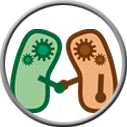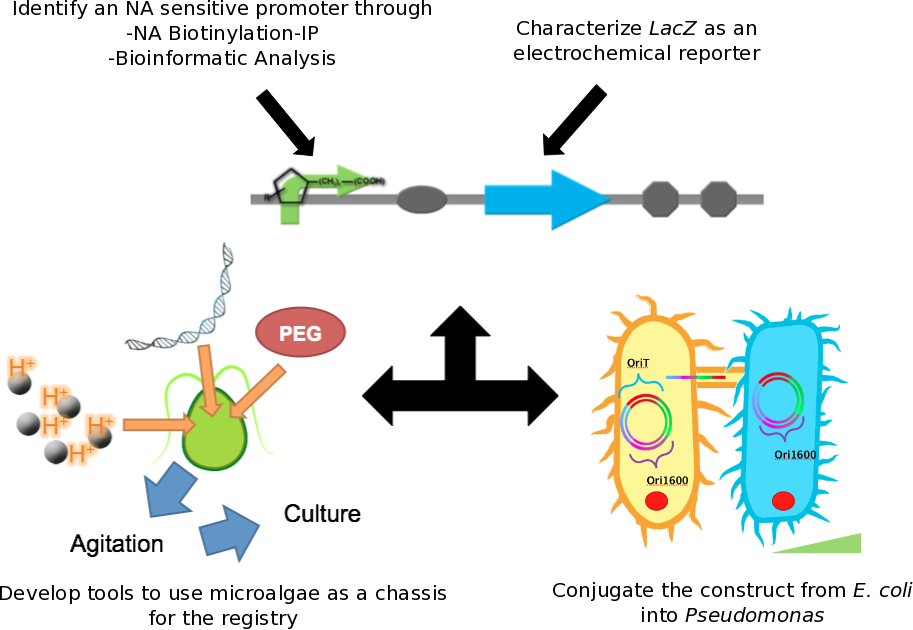Team:Calgary/Project/DataPage
From 2011.igem.org
(Difference between revisions)
Rpgguardian (Talk | contribs) |
Rpgguardian (Talk | contribs) |
||
| Line 2: | Line 2: | ||
{{Team:Calgary/ProjectBar| | {{Team:Calgary/ProjectBar| | ||
| - | TITLE=Building a Naphthenic Acid Biosensor | + | TITLE=Building a Naphthenic Acid Biosensor| |
BODY=<html> | BODY=<html> | ||
<h2>The Design</h2> | <h2>The Design</h2> | ||
| - | </html>[[Image:UofC2011_DataPage1.png|thumb|600px|center|<b>Figure 1</b> In order to develop a naphthenic acid biosensor we were required to develop a sensory element which would respond specifically to this class of compounds. Additionally, we developed a novel electrochemical reporter system using the lacZ gene product Beta-galactosidase to detect and quantify the response of our promoter into a measurable system. Since <i>E. coli</i> is not naturally found in tailings ponds, we designed a novel conjugation system to transfer our reporter system into <i>Pseudomonas</i> as well as protocols for use of our system in microalgae.<html> | + | </html>[[Image:UofC2011_DataPage1.png|thumb|600px|center|<b>Figure 1</b> In order to develop a naphthenic acid biosensor we were required to develop a sensory element which would respond specifically to this class of compounds. Additionally, we developed a novel electrochemical reporter system using the lacZ gene product Beta-galactosidase to detect and quantify the response of our promoter into a measurable system. Since <i>E. coli</i> is not naturally found in tailings ponds, we designed a novel conjugation system to transfer our reporter system into <i>Pseudomonas</i> as well as protocols for use of our system in microalgae.]]<html> |
</html> | </html> | ||
}} | }} | ||
Revision as of 21:25, 28 September 2011









Building a Naphthenic Acid Biosensor

The Design

Figure 1 In order to develop a naphthenic acid biosensor we were required to develop a sensory element which would respond specifically to this class of compounds. Additionally, we developed a novel electrochemical reporter system using the lacZ gene product Beta-galactosidase to detect and quantify the response of our promoter into a measurable system. Since E. coli is not naturally found in tailings ponds, we designed a novel conjugation system to transfer our reporter system into Pseudomonas as well as protocols for use of our system in microalgae.

 "
"






